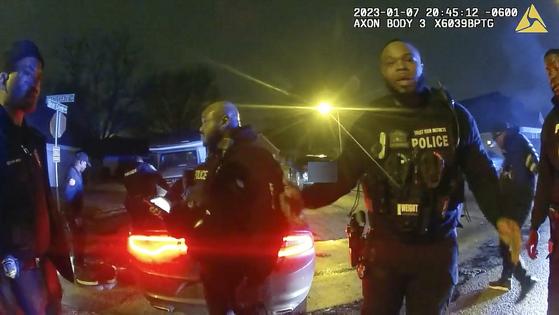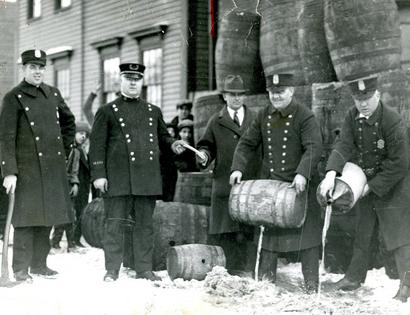Tyre Nichols' death underscores the troubled history of specialized police units
Published in Political News
The officers charged in the fatal beating of Tyre Nichols were not your everyday uniformed patrol officers.
Rather, they were part of an elite squad: Memphis Police Department’s SCORPION team. A rather tortured acronym for “Street Crimes Operation to Restore Peace in Our Neighborhoods,” SCORPION is a crime suppression unit – that is, officers detailed specifically to prevent, detect and interrupt violent crime by proactively using stops, frisks, searches and arrests. Such specialized units are common in forces across the U.S. and tend to rely on aggressive policing tactics.
As academics who study policing, and as former officers ourselves, we have long been aware of potential problems with such specialized units. Treating aggressive crime fighting as the highest priority in policing can cultivate a corrosive culture in which bad behavior is often tolerated, even encouraged – to the detriment of community relations. Changing that pattern requires wrestling with complexities of policing in modern society.
Crime suppression units, sometimes called “violence reduction units” or “street crimes units,” have a long and often sordid history in the United States.
Such specialized units are usually set up to address specific issues, such as drug trafficking or gang crime. An early precedent to modern crime suppression units can be seen in the squads set up by the federal Bureau of Prohibition and their local counterparts during the 1920s. These squads were charged with enforcing newly passed alcohol laws but often lacked the training or numbers to support their mission. The predictable result was the unlawful killing of civilians and corruption. Indeed, the Wickersham Commission report, released in the early 1930s, shows how the power that goes with being part of a specialized unit can be corrosive. It noted that the “unfortunate public expressions [by police] approving killings and promiscuous shootings and lawless raids and seizures” can lead to the alienation of “thoughtful citizens, believers in law and order.”
In more recent times, police agencies have used specialized units to respond to violent crime, often because of a surge in public demand for the police to “do something.” Investing in a more robust public safety infrastructure is expensive, politically fraught and, even if successful, could take decades to reap rewards. So instead of addressing social problems, such as poverty and lack of economic opportunity, elected officials turn to police leaders, who often reach for a familiar tool: aggressive enforcement tactics. Such an approach is intended to prevent, detect and interrupt crime, and to identify, apprehend and punish criminal offenders.
That was exactly the pattern in Memphis, where violent crime in 2020 and 2021 experienced a significant increase, with a per capita murder rate that put it among the most dangerous cities in the nation. These historic rises in homicides were in contrast to dramatically lower rates just a few years before.
In 2021, the city hired Police Chief Cerelyn Davis, who bluntly described her vision: “being tough on tough people.”
As homicides soared, Memphis established the SCORPION team, assigning 40 officers to clean up the most crime-ridden parts of the city. Both Memphis Mayor Jim Strickland and Chief Davis celebrated the number of arrests that the SCORPION team’s officers made, along with the guns, cash and vehicles they seized.
Positions in specialized units come with prestige, flexibility and the lure of future promotions. In better times, membership is restricted to officers with more experience and training. But as the Memphis Police Department lost around 23% of its sworn personnel between 2013 and 2018, the department lowered overall minimum standards for officers, and inexperienced officers were appointed to SCORPION – including those now charged with murdering Tyre Nichols.
Memphis is far from alone. In 2007, the Baltimore Police Department set up the Gun Trace Task Force to address illegal guns and violent crime. And before that, in the 1990s, the Los Angeles Police Department established the Rampart CRASH, or Community Resources Against Street Hoodlums, unit, which focused on gangs and violent crime. In New Orleans, the city’s police department viewed its task force officers, known as “jump out boys,” as “enforcers and agents of crime control.”
Scandal connects these units. In each case – and in many more – officers stepped over the line from aggressive enforcement to misconduct, abuse or even outright criminality. Members of the Baltimore Gun Trace Task Force were eventually convicted on charges including robbery, racketeering and extortion. Rampart CRASH unit officers robbed banks, stole narcotics and engaged in extrajudicial beatings of suspects. The New Orleans Police Department was eventually placed under the oversight of a federal consent decree after the jump out boys developed a reputation as “dirty cops, the ones who are going to be brutal,” in the words of one sergeant.
These result were, for many, entirely foreseeable.
As eminent criminologist Herman Goldstein wrote in 1977, problems arise when “the police […] place a higher priority on maintaining order than on operating legally.” Recent scholars refer to “noble cause corruption,” but readers are probably more familiar with a synonymous phrase: “the ends justify the means.”
Even when well-intentioned, prioritizing aggressive police enforcement can be deeply destructive. Research has found that aggressive police units have significantly more use-of-force incidents and public complaints, while also having fewer complaints against them upheld. This suggests a culture in which some violations are tacitly approved so long as the unit is productive – that is, it makes arrests.
To a significant extent, this comes down to agency culture. A permissive culture, as researchers have long recognized, can both protect and corrupt the nature of policing. Every police department has a culture, but those best able to balance the missions of addressing violent crime and maintaining community support set about shaping and reinforcing their culture instead of leaving it to grow wild.
When aggressive police culture overwhelms the professional norms of constitutional policing, the public safety mission of policing breaks down. Chiefs are put into a difficult position – they must ensure that officers who use coercive authority in response to public demands for crime control also respect the legal limits of their authority.
The legitimacy of policing, we believe, depends on recognizing that while hyperaggressive tactics by young, often inexperienced officers in crime suppression units may contribute to short-term deterrence of some violent crime, those same tactics are very likely to leave a wake of public disgust and distrust behind. That can seriously undermine public safety efforts, including the investigation of violent crimes that rely heavily on community cooperation.
If the history of crime suppression units teaches us anything, it is that they must prioritize legal and rightful policing above aggressive crime fighting. To do otherwise is to risk becoming just another source of violence in already victimized communities.
This article is republished from The Conversation, an independent nonprofit news site dedicated to sharing ideas from academic experts. If you found it interesting, you could subscribe to our weekly newsletter.
Read more:
Black police officers aren’t colorblind – they’re infected by the same anti-Black bias as American society and police in general
‘Acts that defy humanity:’ 3 essential reads on police brutality, race and the power of video evidence
The authors do not work for, consult, own shares in or receive funding from any company or organization that would benefit from this article, and have disclosed no relevant affiliations beyond their academic appointment.


























































Comments